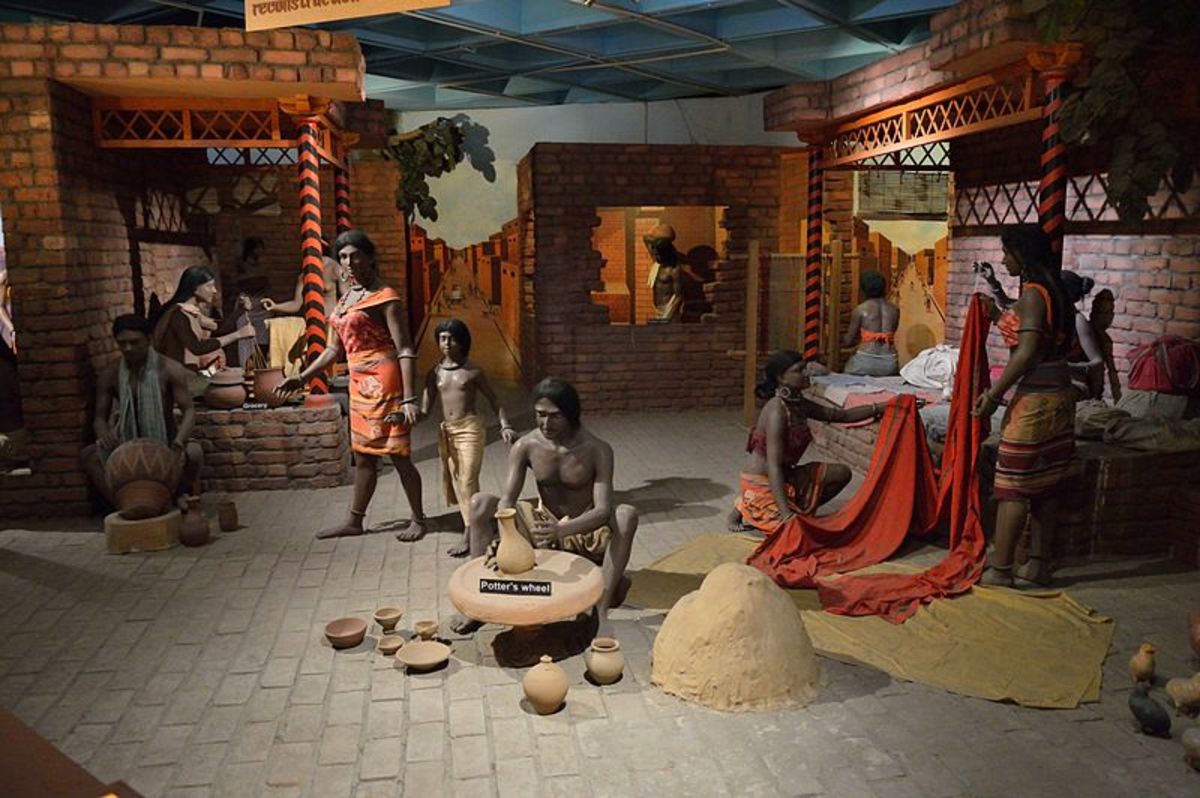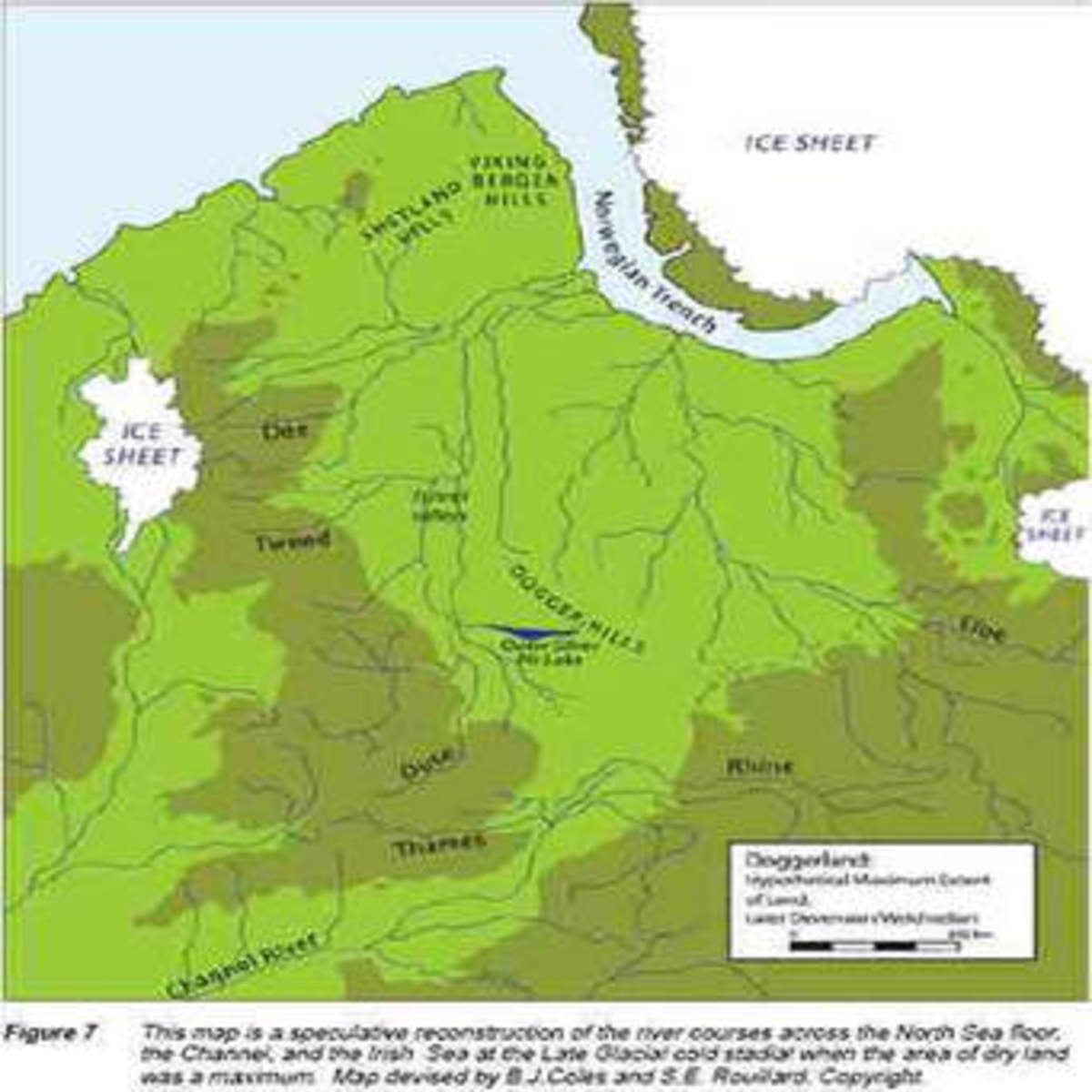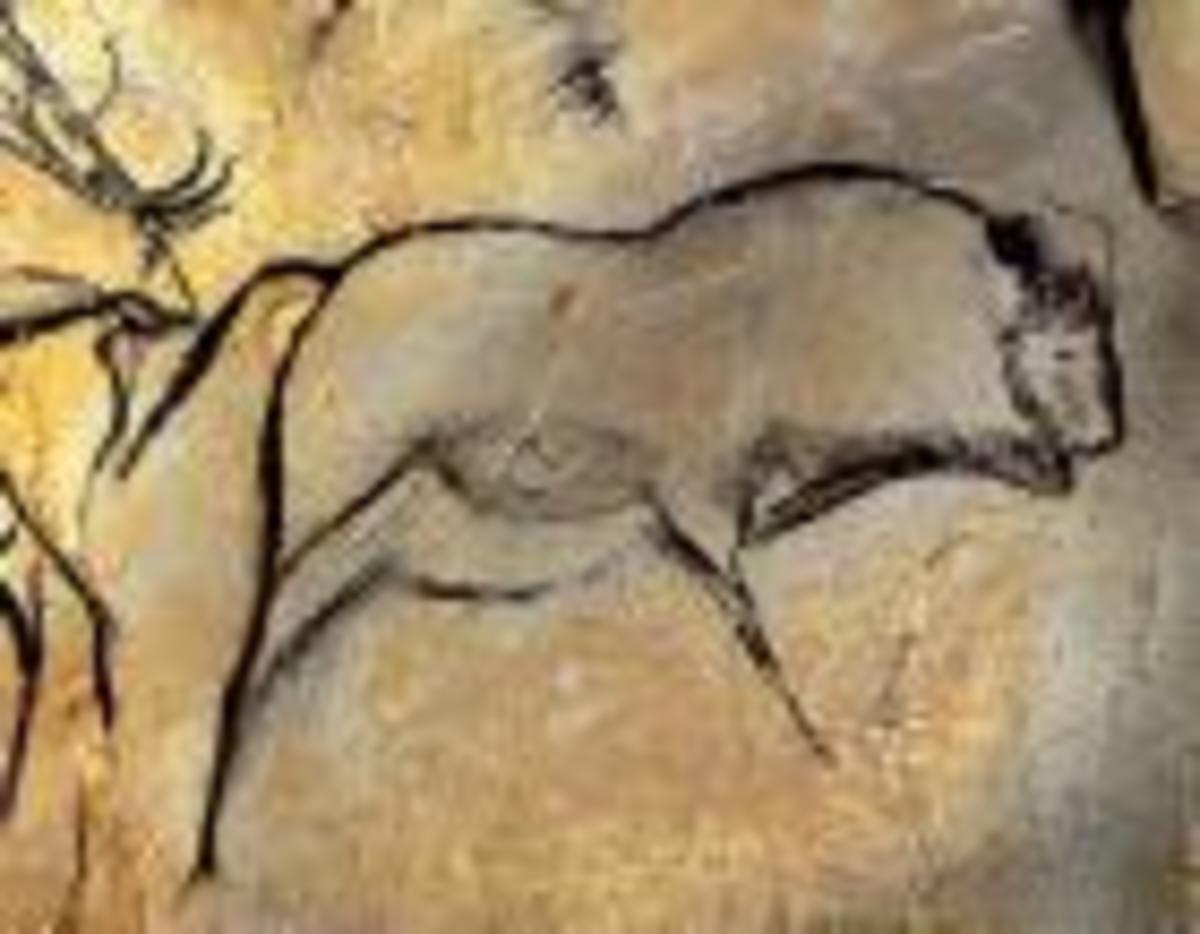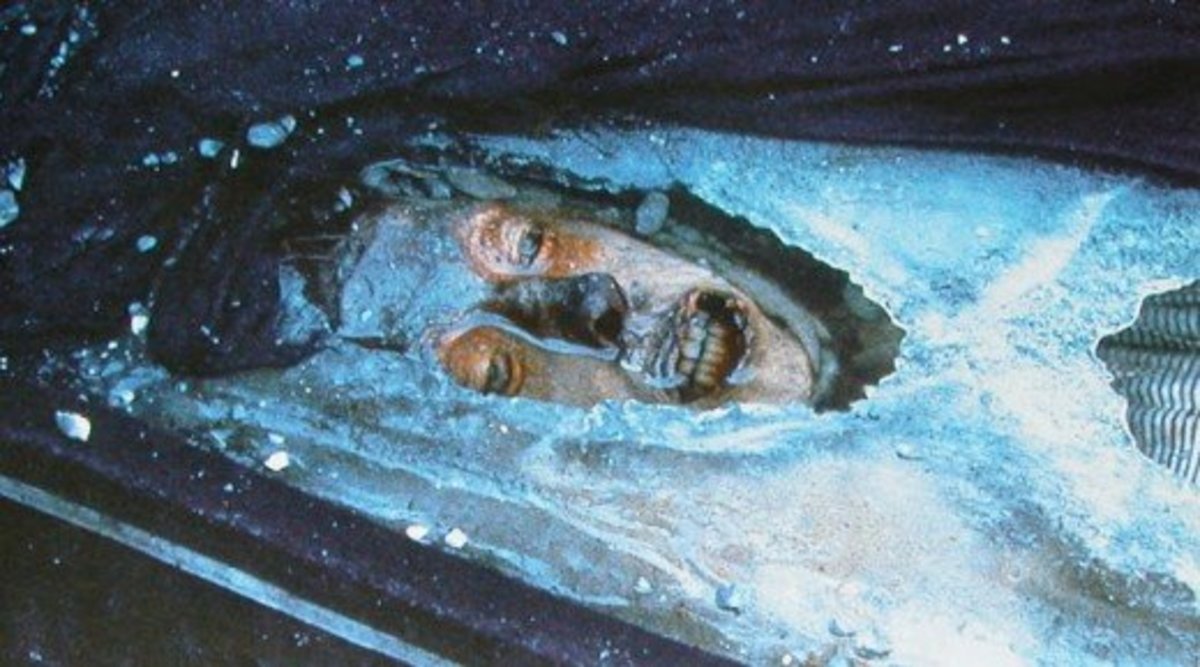Exodus, History or Hoax?
Me and my big mouth!
That's really the only way to describe the genesis of this hub! Sometimes in the heat of a discussion you say something and the others in the discussion say simply "Prove it!" and here we are, well that's what happened here!
But seriously though, there's a lot of discussion here on HP about whether the Bible is accurate or whether it's a later 'creation' re-telling folk tales and legends seeking to explain how the Jewish people came into being, sooner or later we get onto the idea of whether the Exodus from Egypt complete with plagues and drowning of Pharoah's Army could really have happened, could it?
Straight away there's going to be some who say "Absolutely" and some who say "No way sunshine!" then there'll be the majority who just say "No idea" (and frankly not too worried about it either way) and you know what, that's OK! But me and my big mouth (actually it was pounding the keys on my phone but the result was the same) said "Yes and I think I know where the evidence is!"
When the folks I'd emailed picked themselves up off the floor (they'd laughed so hard, and I am writing this in good humor!) they said "Prove it" so here we are!
A little about my sources
Before we go any further I'll explain the sources that I've used for this hub.
I've used a few sources that I said I'd specify for people to be able to find them if they choose to do so and they are as follows
"Ancient Israel in Egypt and the Exodus" a free ebook from the Biblical Archaeology Society (2012)
This book has articles by James Hoffmeier, Manfred Baitek and Herschel Schanks, all prominent Egyptologists or archaeologists in their fields
"Atlas of Military History" (for information about the Battle of Kadesh on the Orontes) Paragon Press 2013
Along with various websites that I'll put the links to.
The way of Horus
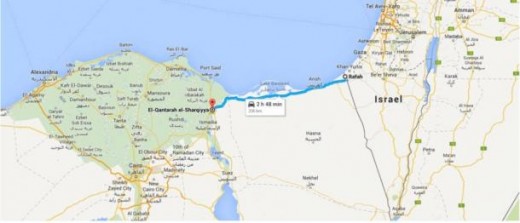
Is there any evidence?
To answer the question directly there's no direct evidence for any of the story of the Exodus, there are no bricks with "Moses was 'ere" written on them!!! Plain and simple.
A couple of possible explanations that James Hoffmeier (head of the Archaelogical excavations in NW Sinai) tells us
- There is none because they were never there! Simple, to the point and what a lot of folks believe. That the Israelites as a whole were never in Egypt, or if they were they were a lot fewer and never had much of an impact
- That what we're asking archaeology to deliver is a bit unrealistic. We're asking it to tell us about one specific people and the events surrounding those people when all archaeology can do is tell us what the living conditions were like for people at the time and can't really differentiate from the Canaanite and the Hebrew!
So, it can't tell us directly, but what can it tell us?
Instead we can look at some of the more indirect evidence and see if that 'stacks up' with what the Bible tells us, it tells us a lot! and in my view the circumstancial evidence points to a real event, but then again I would say that
What Life was like
One of the main reasons for saying the events never took place, or that they were a later invention possibly even a literary one was that there's no record in the Egyptian sources of the events taking place, true there's no record of the events of the Exodus in Egyptian records, but there are no records (also) of the Egyptian Army ever suffering even one defeat in it's whole three thousand years of the Pharoahs and we know that happened!
1275 BC Pharoah Ramases the second (Ramses the Great and thought to be the Pharoah of the Biblical account by many) marched out to face the Hittites at Kadesh on the Orontes, one of the biggest battles in the Ancient world with 20,000 and Chariots from Egypt facing a similar sized force from the Hittites. Ramses tells us it was a great victory, the Hittite sources tell us the Egyptians were almost routed and it was a humiliating defeat! This is just one of qute a few times when the Egyptians were 'creative' with the facts.
As for mention of the Israelites, well it depends on whom you talk to as it turns out if you look in the right places they are mentioned, but who or what the Egyptians mean might require some thinking about.
'Habiru'
One phrase that keeps cropping up at various places is 'The Habiru' or 'Apiru' that may (or may not) link to the Israelites of the Old Testament. Stop and think for a minute, the first time that phrase is used in the Bible (Hebrew) it's Potiphar's wife accusing Joseph of trying to rape her! "That Hebrew slave you brought home" might not be a reference to his family but the fact that to her he's a miscreant lowlife who just refused her advances!
The word describes a Western Semitic people and is actually found not just in Ancient Egyptian Hieropglyphics but also in Ancient Akkadian cunieform (there they were Mercenaries and soldiers of fortune as well as the criminal element!) and generally used of people you didn't want to 'meet on a dark night' Shepherds working out in the fields and guarding their flocks the way Jacob and his sons did would fit that bill quite well (they massacred whole cities in one place in Genesis)
In ancient Egypt to be a 'Habiru' was to be a 'lowlife' living on the edges of society and ekking out a living by whatever means they could! If that's the case then there are many thousands of references to them going back right to the 12th dynasty (circa 1,900 BC)
But surely not all the Habiru references are to the Israelites right? My point is that they could be being referred to or they may not be, we can't rule it out!
When the Israelites arrived in Egypt Genesis tells us they were a class of people that the Egyptians hated, they were shepherds and the Bible makes a point of telling us that Egyptians hated Shepherds and the like! So do some of the inscriptions we have from the 12th dynasty
As I'm writing this I wonder if part of the picture (and this is totally my thinking here so feel free to throw it out) is that the Children of Israel (incidentally Josephus actually says they were the Hyksos A Western Semitic people) who took power around 1,800 BC and were driven out around 1,490 BC formed the nucleus of a society that became the slaves and builders who later took on the name of 'Apiru' and became a nation by adopting all the 'waifs and strays' that came their way, they still maintained their identity as a 'family' much as a minority or other discriminated against group does, what do you think?
Read for yourself (Hoffmeier's work mostly referenced in this article)
Life as a slave

Hebrew or Habiru?
- The Exodus of Moses: Archaeology Verifies The Bible
Manfred Baitak is a prominent Egyptologist who has studied this extensively, you'll also find some of his articles at the BAS site - IBSS - Biblical Archaeology - Evidence of the Exodus from Egypt
More detailed than Wikipedia it has some interesting things to tell us about the Mernepteh Stele and earlier material about the Hebrews - Hebrews - Wikipedia, the free encyclopedia
Wikipedia has a good summary of the discussion about the debate
Read about ancient warfare
Where were they?
Another problem is that the ancient cities mentioned in Exodus up until recently hadn't been identified. But in the last few years Archaeologists believe they have identified both the store cities of Exodus chapter one.
If you look at pretty much any book on the history of Ancient Egypt and the archaeology that's been done there about 90 to 95% of the book will talk about the finds made in upper Egypt with only 5-10% of any given book dealing with the Nile Delta and almost nothing about the Sinai area. Hoffmeier says that the main reason for this is in the Delta you have a the high water table there and the fact that any digs also have to contend with flooding of the site pushing up costs so they have to set up drainage systems before they can even begin.
Up in Upper Egypt (from Cairo as far as Aswan) you don't have to contend with a high water table thus reducing costs and the 'costs to rewards' ratio is much higher.
Having said that some digs have been performed in and around the Delta at significant sites and some sites that are no longer in the flow of the Nile but were in ancient times, a couple of these are sites like Tel El Dab'a (ancient Avaris, Capitol of the Hyksos dynasties) Carried out by Manfred Baitak (Vienna University started around 2000 and still ongoing) and Qantir about 20 miles from Tel el Dab'a both of these sites have been shown to have been important centers right back as far as the 12th dynasty of Egypt (circa 1,900 BC) but according to the archaeologists digging at the sites because of the humidity no Papyri have ever been found at the sites where Papyri are regularly found at sites in upper Egypt.
According to archaeologists no inscriptions humiliating a Pharoah have also ever been found (usually where a Pharoah was deposed or as in the case of Akhenaten who was regarded as a heretic) he was simply removed from the record and his face was defaced in the inscriptions) so most Egyptologists say it's unlikely they'll ever find a record of the Exodus in Egyptian records (and if they did they'd probably be highly skeptical as it just doesn't fit the pattern!).
Exodus 1 verse 11 says that the Israelites were put to work building the 'supply cities' of Pithom and Ramses. Hoffmeier and Baitek are confident that they have identified these two ciies as the following
Qantir was Pithom
Tel el Dab'a was Raamses
Both of these cities ruins are situated on the firnges of the modern Delta about half way between the modern cities of Port Suez and Port Said. They're on a tributary of the Nile that dried up around 1,000 BC near the Great Bittler lakes
There is a lot agreement between Egyptologists that these are the cities of Exodus chapter one, and the discussion has shifted more to when it happened and how big it was rather than if it happened at all!
Some of the 'Bible minimalists' have said that the narrative is a later writing (possibly around the 9th Century BC) due to the fact they use the name of a Pharoah not yet born if you stay with the traditional dates (Raamses II was around 1303 BC to 1213 BC) and was thought to have founded Pi Raamses but the record shows that the city is much older than he is! Could it be that he took over the ruins and decided to rebuild? but the key according to Hoffmeier is that the river dried up around 1,000 BC and by the time the minimalists say the city was deserted had been for a hundred or so years! The only conclusion is that whatever happened took place before then, Hoffmeier suggests that those who take the time of Raamses II would run across the problem that at that time (Mid to late Bronze age) you'd have the problem that the cities of Israel were mostly unforitified at the time where in the Early Bronze age those ame cities were fortified like the Bible says the Israelites encountered (but that may be for other hubs! :-)
This is amazing (and all by co-incidence when the Bible says?) A MUST WATCH!!
Possible location of Goshen
Possible location of the 'Store city' Pithom
Great Bitter Lake. Now part of the network that makes up the Suez Canal. This may actually be the 'Sea' that was parted (not the 'Red' sea)
Interesting views
Not all the historians agree on the date of the Exodus. Some say that it was around the time of Raamses II (So did Cecil B De Mille!) Others put it earlier but one that I found that was quite amusing from Araham Malamat (Head of the Israeli Antiquities Authority until his demise in 2010) said in an artilce called 'Let my people go and go and go and go' that there were a series of 'Exodi' and the record we have is of the biggest one around 1,400 BC.
Further evidence of the authenticity of the Exodus account Hoffmeier points out is 'The way of Horus' a series of fortifications built along he northern part of the Sinai stretching from the store cities of Pi Raamses and Pithom upto almost as far as Kadesh Barnea in what is now Israel, at the time the Mediterranean sea formed more of a bay and went about twenty miles further south than it does today creating much more of a bottleneck that if the Israelites followed the directions in the Bible to the letter they would have been stuck between the second and third fortress and the Med to the North and a marsh sea to the south (sea of reeds, don't knock it God drowned and entire army there!) The key is that some of the fortresses along the way of Horus have actually been identified and Pi Hahiroth and Migdol have been identified as the second and third fortresses with a distance of about five miles in between them, Migdol was actually on an Island in the 'reed sea' thus it's entirely possible that this really did happen!
Conclusion
There's a lot more I could write here but I'm forcing myself to stop as I think the basic points have been covered. Have I demonstrated that the Exodus really happened, probably not sufficiently for a lot of folks!
Have we seen that it could have happened, I think you'll agree with me and say yes!
Is there any evidence for it, the answer to that is also yes, but evidence for the possibility or even the event doesn't mean that it necessarily happened and in the way that it's recorded!
Is there evidence for it? Yes!
Is there proof that it happened the way the Bible said, that depends on how you read the text!
To me it did. and to me it's also important that it did, why? Because I'm one of those who don't like 'fairy tales'. That might sound harsh, but it's true and the truth is that probably none of us like to hear that stories we'd taken from childhood to be true to be told that they're not true! (No, I've never tried to prove Santa Claus as I never really believed in him).
Watch the National Geographic video about some of the events described in the Exodus and some natural explanations for the phenomena! Then remember they happened 'on cue'
I hope that this hub has made you 'stop and think' about what you've thought about the book of Exodus, I'll be honest at first I really thought I'd bitten off more than I could chew but as I've gotten into it I've really enjoyed the research and writing the hub, I hope you enjoy the hub as much as I've enjoyed writing it.
I'd love to hear from you, leave a comment below.
Lawrence




